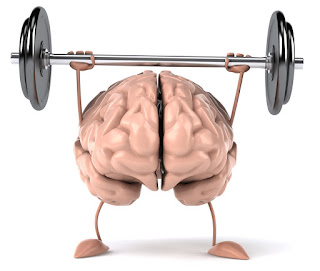Some Highlights
Mental fitness is just as important as physical fitness, and shouldn’t be neglected. Including mental dexterity exercises into your daily routine can help you reap the benefits of a sharper mind and a healthier body for years to come.
Mental fitness means keeping your brain and emotional health in tip-top shape. It doesn’t mean training for “brain Olympics” or acing an IQ test. It refers to a series of exercises that help you:
2
Meditation
Mind-body connection
It’s no surprise that the more you help your body, the more you help your mind. Physical activity increases the flow of oxygen to your brain. It also increases the amount of endorphins, the “feel-good” chemicals, in your brain. For this reason, it’s not surprising that people who are in good physical shape also tend to enjoy a higher level of mental agility.
Engaging in a vigorous physical workout can help you battle depression and gain a more positive outlook on life. It’s also a great way to beat stress, which can harm you mentally and physically.
Mental exercise is just as beneficial. According to a study in the Proceedings of the National Academy of Sciences, certain memory training exercises can increase “fluid intelligence,” the ability to reason and solve new problems.
While exercise is good for the brain and the body, so is meditation. Meditation, in conjunction with other methods, is an alternative way to treat depression. Calming the mind allows you to problem solve in a more relaxed way.
Benefits of mental fitness
When you go to bed after a long day, your body begins to relax. But the mind doesn’t always follow.
Visualization can help. You can often achieve a sense of peacefulness through imagery, the process of picturing a tranquil scene or location. This practice can reduce tension in both your body and your mind by challenging neurons in the less-dominant area of your brain.
The less-dominant side of your brain is the area that controls feelings of self-confidence and optimism. When you think about something other than your daily worries, you increase activity in the neural structures of that area of your brain.
Ultimately, visualization can boost your emotional well-being and calm you down mentally.
Become mentally fit
Keeping your mind mentally fit isn’t as difficult as getting ready for a marathon, but it’s a good analogy. You can add mental exercises to the many activities you already perform, such as:
You might try the following approaches to increase your mental fitness.
Stop multitasking
You may think that multitasking enables you to get more things done at once, but it actually creates more problems than it solves. Focusing on one task at a time will improve your concentration and help you to be more productive.
Be positive with yourself
Positive affirmation is one avenue to increased mental proficiency.
Affirmation, or talking to yourself in a positive way, involves strengthening neural pathways to bring your self-confidence, well-being, and satisfaction to a higher level.
To start, make a list of your good qualities. Remind yourself that you don’t have to be perfect. Set goals for what you want to improve and start small to avoid becoming overwhelmed.
Try something different
New experiences can also set you on the path to mental fitness. You can fit new approaches into your daily life in a variety of ways:
According to the Alzheimer’s Association, research shows that keeping your brain active increases its vitality. Doing new things in new ways appears to help retain brain cells and connections. It may even produce new brain cells. In essence, breaking out of your routine can help keep your brain stay healthy.
Play games
From Sudoku to handheld games, people young and old alike have been looking for ways to improve their mental functioning and prevent brain aging. This list has ten of the best games and websites to improve your mental fitness.









/about/hours-of-entertainment-90082661-57d817263df78c583344199b.jpg)


0 comments: